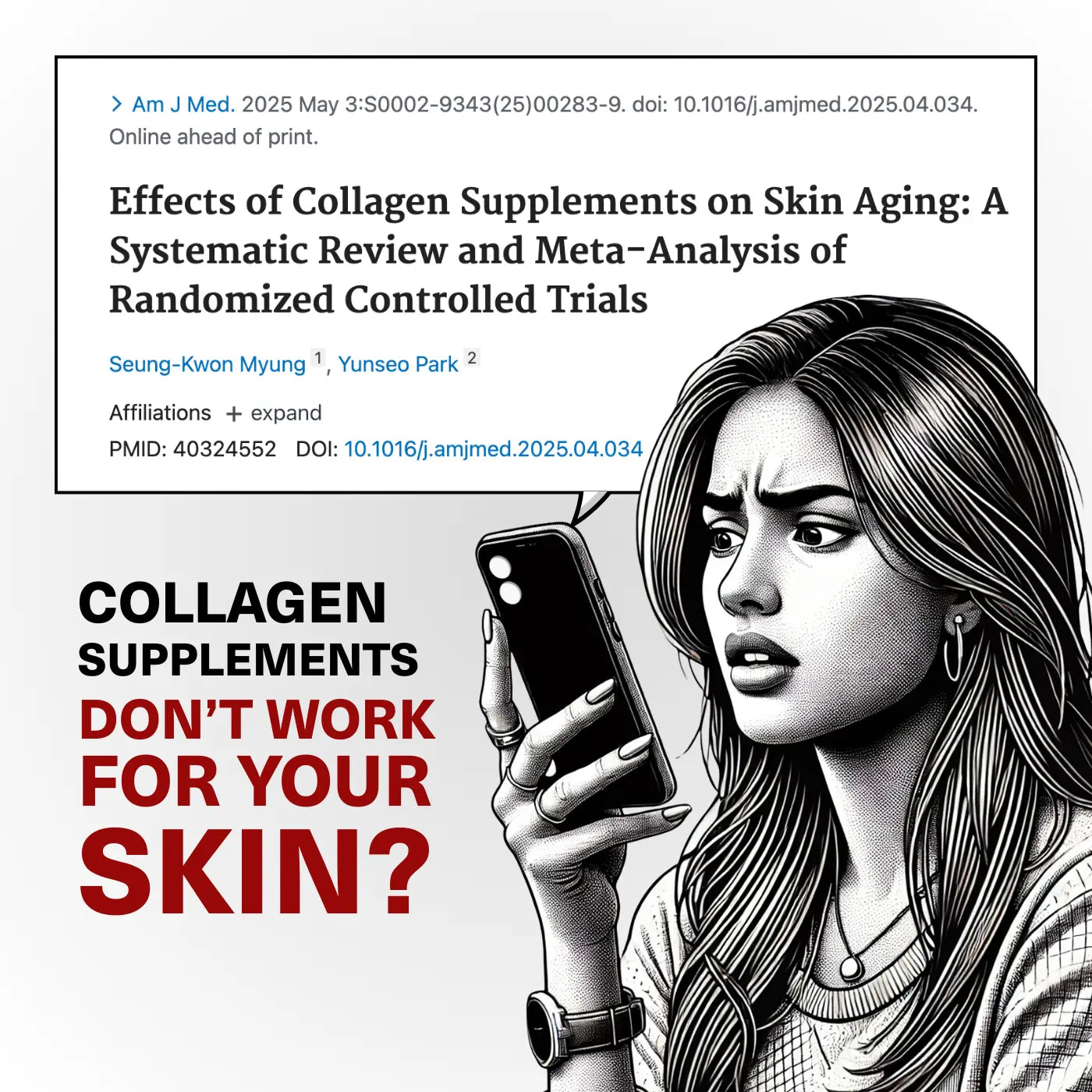Every now and then, a new study comes along and shakes up what we thought we knew. Recently, a meta-analysis by Myung & Park (Am J Med, 2025) made headlines for claiming:
“There is currently no clinical evidence to support the use of collagen supplements to prevent or treat skin aging.”
Naturally, this has sparked numerous discussions and some confusion. Let's take a closer look at what the paper actually states.
What the Study Reported
The authors reviewed 23 Randomized Controlled Trials (RCTs) and found that collagen supplements:
- Improved skin hydration
- Improved skin elasticity
- Reduced wrinkles
On its own, this is a strong and positive finding, consistent with earlier meta-analyses.
But the authors went one step further, comparing ‘funded’ and ‘non-funded’ studies. They reported that benefits appeared only in funded studies, and not in non-funded ones, which led them to question the validity of collagen’s effects.
Why the Funding Analysis Doesn’t Hold Up
When we look at the subgroup analysis, it becomes clear that several studies classified as ‘non-funded’ were actually internal R&D studies supported by the collagen manufacturers themselves, with disclosures clearly made in the respective publications.
Examples include:
- Sugihara et al. and Inoue et al. — Nitta Gelatin
- Kim et al. — Newtree
- Tak et al. — Amicogen
- Seong et al. — Daehan Chemtech
In reality, 21 of the 23 studies were funded in some form, which is very common in nutraceutical research, since independent funding is rare in this area.
So the idea that benefits disappear in truly independent studies isn’t something this meta-analysis can actually demonstrate.
Some Additional Errors:
Beyond the funding misclassification, a few factual errors stood out:
| Study | Reported in Meta-Analysis | Actual Data from Original Study |
|---|---|---|
| Lin et al. | 50 g collagen/day | ~5.5 g collagen/day |
| Inoue et al. | 2 g collagen/day | 5 g collagen/day |
| Guadanhim et al. | Collagen source: bovine only | Source: bovine + porcine mix |
| Sangsuwan et al. | 8 weeks of supplementation | Only 4 weeks of actual supplementation |
The analysis also combined very different study designs, collagen types, doses, and delivery formats, without adjusting for these differences.
What We Can Take Away
Even within this paper, the pooled analysis clearly shows that collagen supplementation improves hydration, elasticity, and wrinkles, which aligns with existing evidence.
It’s also worth remembering that funding, on its own, doesn’t invalidate good research. In fact, approximately 80% of the studies that achieved a high quality rating of 5 on the Jadad scale were funded.
Many of the highest-quality trials in nutraceuticals are funded by the companies developing the products, and that’s perfectly reasonable, as long as disclosures are clear and methods are sound.
Beyond the Headline
When reading studies, especially ones that get a lot of attention, it’s worth taking a closer look at the methods and details behind the headlines.
In this case, the claim that collagen lacks evidence of benefit doesn’t hold up when you look at the full picture.
So, collagen supplementation remains a reasonable, evidence backed option for improving skin hydration and elasticity, and as always, more independent research will help strengthen our understanding over time.
